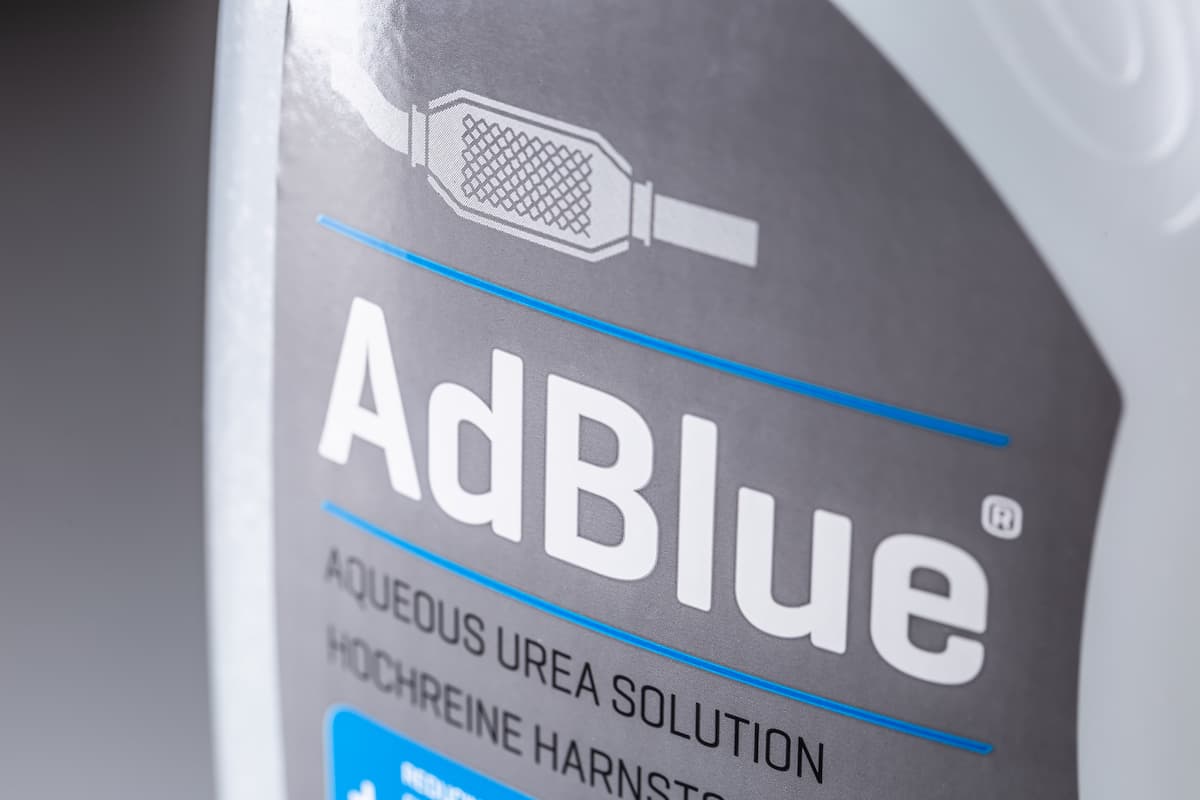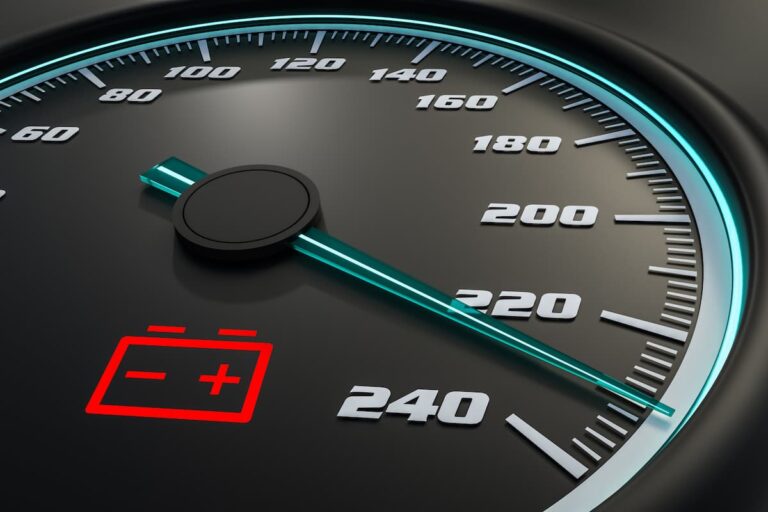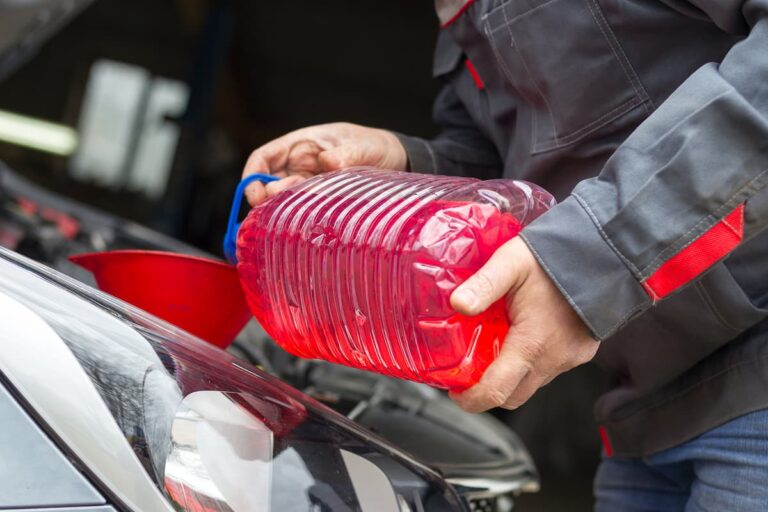When Did DEF Start in Pickup Trucks?
All cars emit greenhouse gasses from the fuel they burn for power.
Diesel engines, like those found in pickup trucks, emit more pollutants such as carbon dioxide (CO2), nitrogen oxides (NOx), and fine particulate matter (PM) than gasoline engines.
As a result, the Environmental Protection Agency (EPA) instituted a mandate to reduce emissions in diesel-powered vehicles.
Car manufacturers then introduced pollution-reducing technologies in diesel engines, including NOx reduction systems and PM filters.
In 2008, the EPA mandated Diesel Exhaust Fluid (DEF) for all diesel trucks 3/4 ton or larger. DEF is used in selective catalytic reduction (SRC) systems to reduce the pollutants in diesel exhaust. In 2010, the EPA extended the regulation to other diesel engines, including pickup trucks.
What is DEF and When Did it Start?

As part of the Clean Air Act of the 1970s, the EPA established strict regulations regarding airborne pollutants.
Vehicle emissions were linked to cardiovascular and respiratory diseases, with nitrous oxides found to harm our health and the environment.
The EPA first moved to reduce emissions through exhaust gas recirculation (EGR), followed by the introduction of the diesel particulate filter (DPF).
Eventually, they switched to the selective catalytic reduction (SRC) systems we now find in diesel engines like the Cummins.
To work effectively, SRCs rely on a consumable Diesel Exhaust Fluid (DEF) made of approximately 33% urea and 67% deionized water.
This fluid filter removes fine particulate matter and, working with another compound, reduces NOx emissions from diesel exhaust.
The SRC system works by injecting small amounts of DEF into the exhaust system with a catalyst.
It breaks down into carbon dioxide and ammonia, converting the nitrous oxide emissions into harmless nitrogen (N2) and water (H2O).
Since DEF depletes over time, vehicle owners must monitor fluid levels and refill them throughout the life of the vehicle.
DEF was regulated for all commercial vehicles with diesel engines 3/4 ton or larger, starting in 2008.
In 2010, the EPA released new emission guidelines, mandating DEF systems in medium and heavy-duty vehicles.
By 2013, the EPA required SRC systems using DEF for all diesel-powered vehicles, including pickup trucks, though many truck manufacturers began installing DEF before the mandate.
Vehicles built before 2010 don’t require DEF, but Ford began installing DEF in 2008, while GM and Dodge switched from DPF to DEF systems in 2010 and 2011, respectively.
These manufacturers switched to DEF before they ‘had to’ for two reasons: fuel economy and appeal.
Ford moved to DEF in 2008 because DEF pickups got better fuel mileage than older models with DPF systems.
It also gave them a great selling point with customers and looked better with environmental regulators.
Not only was better fuel economy a selling point for DEF trucks, but most of the country was (and is) also very focused on environmental issues.
Swapping to a lower-emission system makes manufacturers more competitive and seemingly more responsible.
DEF Tips And Maintenance
If you drive a diesel truck made after 2010, you need to know a few things about your SRC system.
Because DEF is consumable, you’ll need to refill or change it whenever it runs low, just like motor oil or wiper fluid.
Vehicles using a DEF system produced after 2010 have an additional gauge next to the fuel gauge for DEF levels.
If your truck doesn’t have a DEF gauge, it’s recommended to top off your fluid whenever you fill your fuel tank.
DEF doesn’t run out as often as fuel, but this habit will keep your levels within the ideal range.
You can purchase DEF at most auto-parts stores or gas stations.
It has a shelf life of around two years if you keep it in a climate-controlled space and out of direct sunlight.
In weather below 12°F (-11°C), DEF can freeze.
Thankfully, DEF freezing doesn’t impact vehicle startup or performance. It will thaw with the heat of your running vehicle and will function normally.
Don’t put any anti-gelling or anti-freezing additives into your DEF.
It will throw off the chemical ratio, causing the fluid to fail.
What Happens If You Run Out of DEF?

If your vehicle runs out of DEF, the severity of the damage can vary – it won’t drive the same and could be costly to repair.
Primarily, the system will not function correctly, and your speed and acceleration will be limited.
However, if you run completely dry, the sensor on top of the DEF tank can break.
On its own, the DEF sensor can cost over $1,000.
Running the vehicle without DEF can also lead to major exhaust issues.
Your lines will clog up with soot and debris, eventually leading to a breakdown.
Your truck should alert you well ahead of time that your DEF is running low and needs to be refilled.
It will also function normally once you refill the DEF tank.
Conclusion
The EPA mandated Diesel Exhaust Fluid for use in medium and larger diesel trucks in 2010.
By 2011, all major manufacturers produced pickup trucks with SRC systems and DEF to improve fuel economy and meet EPA emission guidelines.
DEF is a consumable (like motor oil and wiper fluid), so truck owners must refill their DEF tanks periodically.
Modern trucks have DEF gauges on their dashboards, but older trucks may need their levels checked manually.
When in doubt, double-check your owner’s manual for advice on properly maintaining your vehicle’s DEF system.






